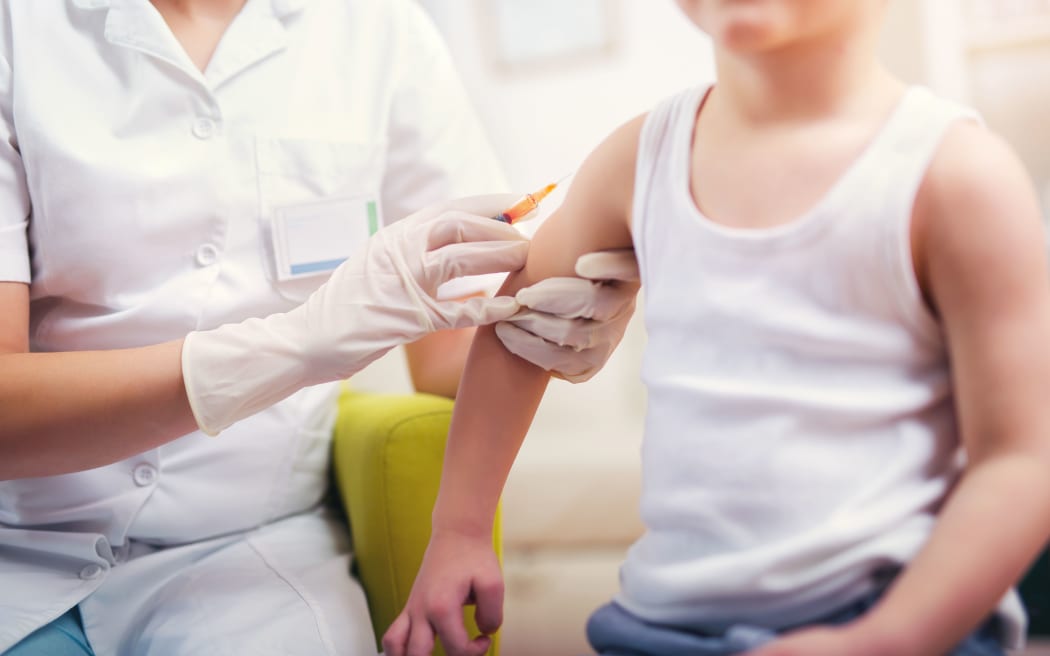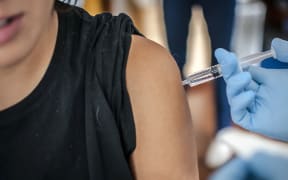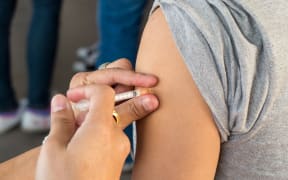Health authorities will start giving babies their first measles vaccine at a younger age in Auckland, in an effort to curb the region's outbreak of the disease.

Photo: 123rf.com
The Auckland Regional Public Health Service and the Ministry of Health are asking doctors to bring forward the measles, mumps and rubella vaccination from 15 months to one year.
Clinical director Dr Julia Peters said the change was being made immediately to protect those most vulnerable.
She said doctors had seen a significant number of young babies with measles, many of whom had been hospitalised.
Dr Julia Peters said health authorities were very concerned the disease could spread further.
"We've done everything we can to control this and bring it to a conclusion. Ultimately, measles is an incredibly infectious viral illness and it's really just not possible using traditional public health mechanisms to control it."
So far this year there have been 104 cases of measles in Auckland, with 43 percent of patients under five years old.
Dr Peters said 95 percent of the population needed to have had two MMR vaccines to prevent measles outbreaks in the Auckland region.
"Even though our vaccination rates in some parts of Auckland are quite good, they might be getting closer to the 90 percent fully vaccinated rate, this is not going to be enough."
Dr Peters said supplies of the measles vaccine were assured, and health authorities were also asking doctors to recall all children under five who missed out on their first vaccine.
"There was no problem with stock ... there is no impediment to people who need to be vaccinated."
Children travelling to countries where there are measles outbreaks can be vaccinated against measles from six months.
Starship Community Nurse Leilani Hipa said giving babies their first measles vaccine at a younger age would help protect the most vulnerable, including those who - because of immune problems - could not have vaccinations.
"Children recieving cancer treatment, children with long-standing disability - we need to wrap around them to offer them protection because they don't have the choice to be vaccinated."
Ms Hipa said the worst possible outcome of a vulnerable person catching measles was death, and very young children were particularly vulnerable to its other effects including dehydration, phneumonia and high fever.
"That's why we're really encouraging people to get immunised if they haven't already."




